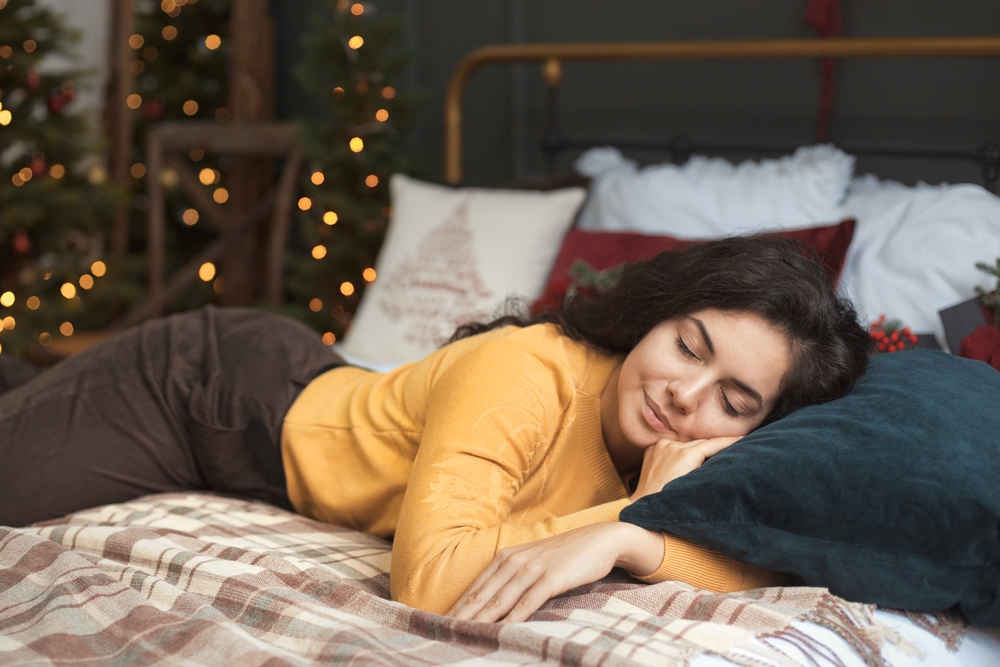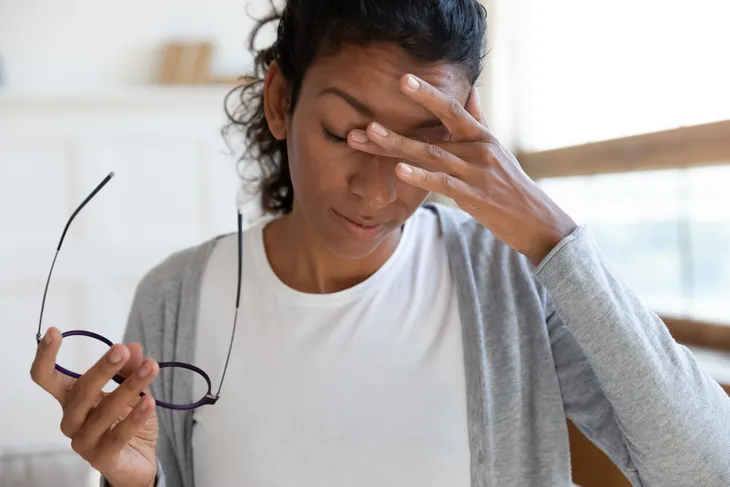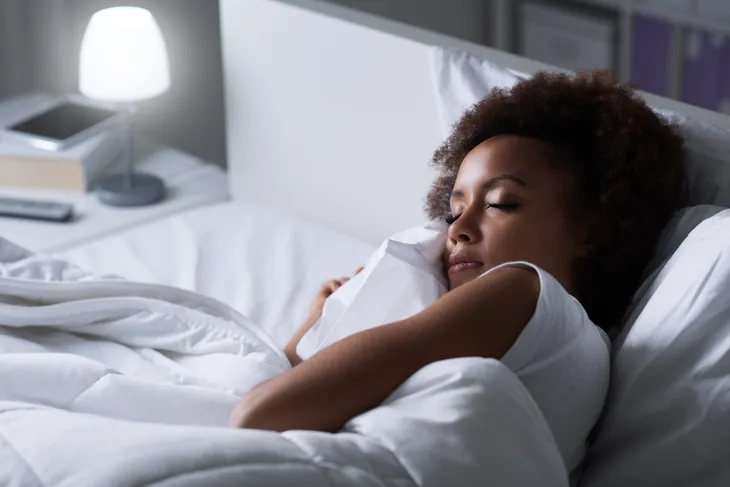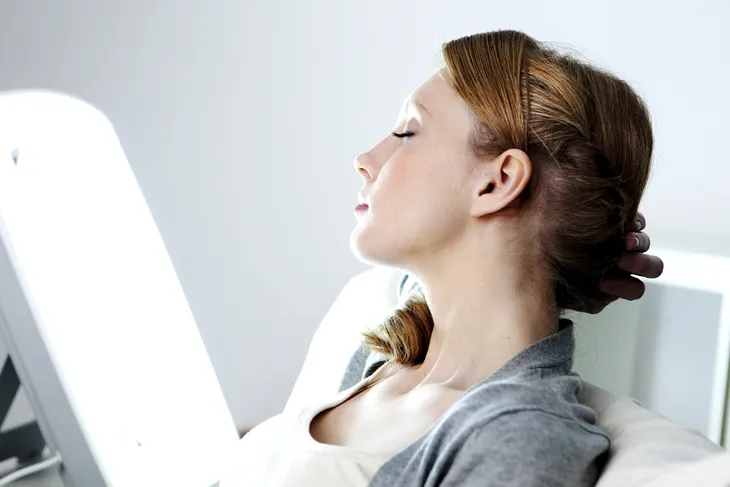- Traveling during the holidays can be fun but the one downfall of long-distance travel is jet lag.
- Jet lag is a disorder that occurs when your circadian rhythm doesn’t match the local day-night cycle and it typically develops when you travel east or west and across three or more time zones.
- Luckily, there are simple things you can do to help prevent or reduce the symptoms of jet lag.
The holiday season is often full of travel plans to visit family and friends, or to go on a family adventure! While traveling can be fun, one downfall of long-distance travel is jet lag — it can really put a damper on your Christmas cheer!
Jet lag often occurs when we cross multiple time zones rapidly, causing the circadian rhythm (or the body’s internal clock) to be thrown off. It also typically results in annoying symptoms like daytime fatigue, nausea, and gastrointestinal problems. Luckily there are some things you can do to help prevent and reduce these symptoms. Here’s a look at why we experience jet lag plus a few tips to help prevent and manage jet lag this holiday season.
What Is Jet Lag?
The Sleep Foundation explains that jet lag is a disorder that occurs when “your 24-hour internal clock, known as your circadian rhythm, does not match the local day-night cycle.” The source says it typically happens when a person travels across three or more time zones.
For example, if you fly from one end of the country to another (such as Los Angeles to New York), your body may still operate as if it was still in Los Angeles. This can cause you to sleep at odd hours or feel more tired.
Common Symptoms of Jet Lag
So, how do you know if you’re experiencing jet lag? The Sleep Foundation says a common symptom of jet lag is sleeping problems. You may find it difficult to fall asleep when you want to or you may wake up earlier (or later) than you planned. Jet lag can also cause sleep disruptions throughout the night.
Another telltale sign of jet lag is daytime sleepiness. The source says jet lag can leave you feeling exhausted and excessively tired during the day. Jet lag can also cause the following symptoms:
- A general feeling of unwell
- Irritability
- Impaired thinking
- Weakness
- Gastrointestinal problems (such as nausea, loss of appetite, constipation, and irritable bowel syndrome)
- In rare cases, it may cause sleep paralysis and seizures
When Do Jet Lag Symptoms Begin and How Long Do They Last?
Symptoms of jet lag typically develop immediately or they may develop a few days after travel. The Sleep Foundation also notes it’s common to sleep well your first night after travel but to experience sleeping problems the days following.
The source notes that jet lag can last anywhere from a few days to weeks. However, generally, “symptoms persist for 1-1.5 days per time zone crossed.” This can, of course, vary depending on the individual as well as the details of your travel.
Is Jet Lag Serious?
The good news is that jet lag is usually a short-term problem. Once your circadian rhythm adjusts to the local time, your symptoms should go away. However, jet lag can become a chronic problem for people who travel frequently.
Chronic jet lag can increase your risk of insomnia as well as disorders like diabetes, depression, and some types of cancer, explains the Sleep Foundation. A healthy circadian rhythm is vital for everyone so it’s important to do what you can to prevent jet lag.
How to Prevent Jet Lag for Short Trips
If you’re planning a short trip, such as only a day or two, then the Sleep Foundation suggests trying to keep your circadian rhythm aligned with your home time zone. This way you can avoid disruptions during the trip and when you get home.
This does require strategic planning. You’ll need to plan your sleep schedule and activities around your home time zone. But if you’re traveling for more than a few days this isn’t always realistic. Instead, you’ll need to try a few methods to help prevent jet lag. Let’s take a look at these next!
Pre-Adjust Your Circadian Rhythm
One effective way to prevent jet lag is to pre-adjust your internal clock. You can do this by slowly adjusting your sleep-wake schedule in the days leading up to your vacation. The idea is that once you leave for your trip and enter a new time zone, you’ll already be adjusted to the time zone of your destination.
This method isn’t always feasible though. Depending on your work schedule or other obligations, adjusting your sleep schedule may not be possible. So let’s keep looking at other ways you can prevent holiday jet lag.
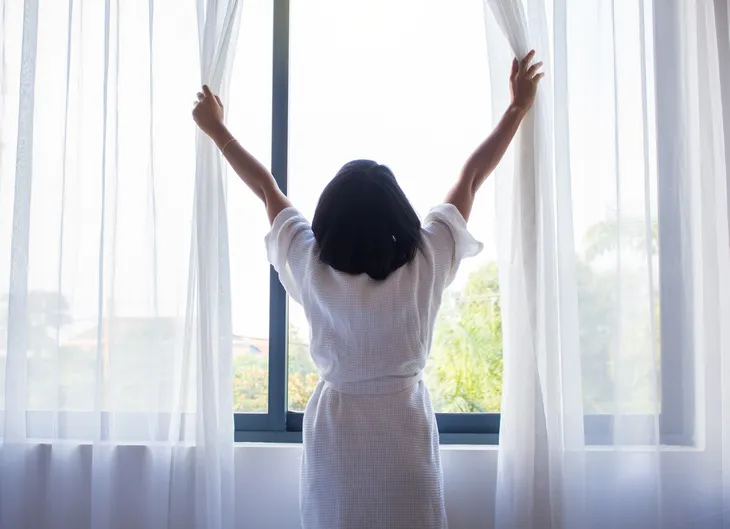 Shutterstock/Pranee Chaiyadam
Shutterstock/Pranee ChaiyadamSleeping Aids
Your body naturally produces a hormone called melatonin that is responsible for making you tired and controlling your circadian rhythm. The Sleep Foundation says that melatonin is normally produced in the evening, but the process can be thrown off by jet lag. One way you can help boost your body’s melatonin is by taking a sleeping aid or supplement.
Both prescription and over-the-counter sleeping aids exist and may help you get the sleep you need during travel. However, it is important to be aware of the side effects and always discuss new supplements or medications with your doctor first.
Light Exposure
The Mayo Clinic explains that natural sunlight (as well as other factors) can heavily influence your circadian rhythm. So with that in mind, light therapy may help prevent or reduce jet lag.
Light therapy can be done with an artificial bright light that simulates sunlight or you can use natural sunlight. The idea is to expose your body to the light when you’re meant to be awake to help your internal clock adapt to the new daylight schedule.
How to Practice Light Therapy Before and During Travel
You can start light therapy up to 3-days before your trip. The source says if you’re traveling east, try waking up about 1-hour earlier than your usual wake time and get at least 1-hour of light exposure. Do this daily, waking up one hour earlier each day until your trip. If you’re traveling west, you should delay your wake time and bedtime.
Once you’re at your destination, the source suggests avoiding bright daylight first thing in the morning if you’re traveling east and three to five time zones. Aim to get bright light exposure in the mid to late morning. When crossing more time zones or when traveling west, the source says you should avoid bright light the morning of arrival and instead, seek sunlight in the early afternoon. Then, each day of your trip, gradually shift your light exposure until you’re fully adjusted.
A quick tip: when you’re outdoors and need to avoid light exposure, wear dark sunglasses to help block out light.
Be Strategic When Booking Flights
Another way you can help reduce jet lag is by booking a red-eye flight. Overnight flights can help you stick to a normal schedule. Do your best to sleep on the flight so that when you arrive in the morning you’ll be better adjusted to your new time zone.
It’s also best to avoid flights with short layovers as these can throw off your internal clock even more. Instead, try to book a non-stop flight.
Caffeine
We all know that caffeine is an energy booster when you need it. So if you’re tired in the middle of the day after traveling, you can have a cup of coffee to give yourself a little jump start.
While caffeine might not prevent jet lag, it can temporarily help reduce your symptoms. Some great options are coffee, espresso, and soft drinks. Just be sure to curb your caffeine intake at least 6-hours before going to sleep or it may cause you a restless night and aggravate your jet lag symptoms.
Lavender
If you’re having difficulty adjusting to your new time zone and find falling asleep a challenge then you might want to consider lavender essential oil. According to The Sleep Doctor, lavender oil is a popular choice for sleep and relaxation.
The source says there are several studies that show lavender oil can help improve sleep quality and it may also increase time spent in deep sleep. You can try lavender aromatherapy for 30-minutes in a well-ventilated room. You should also never apply undiluted essential oil to your skin. When using essential oils topically, the source says to make sure it’s already in diluted oil. You can also consider relaxing in a lavender-scented bubble bath or lighting lavender-scented candles.
